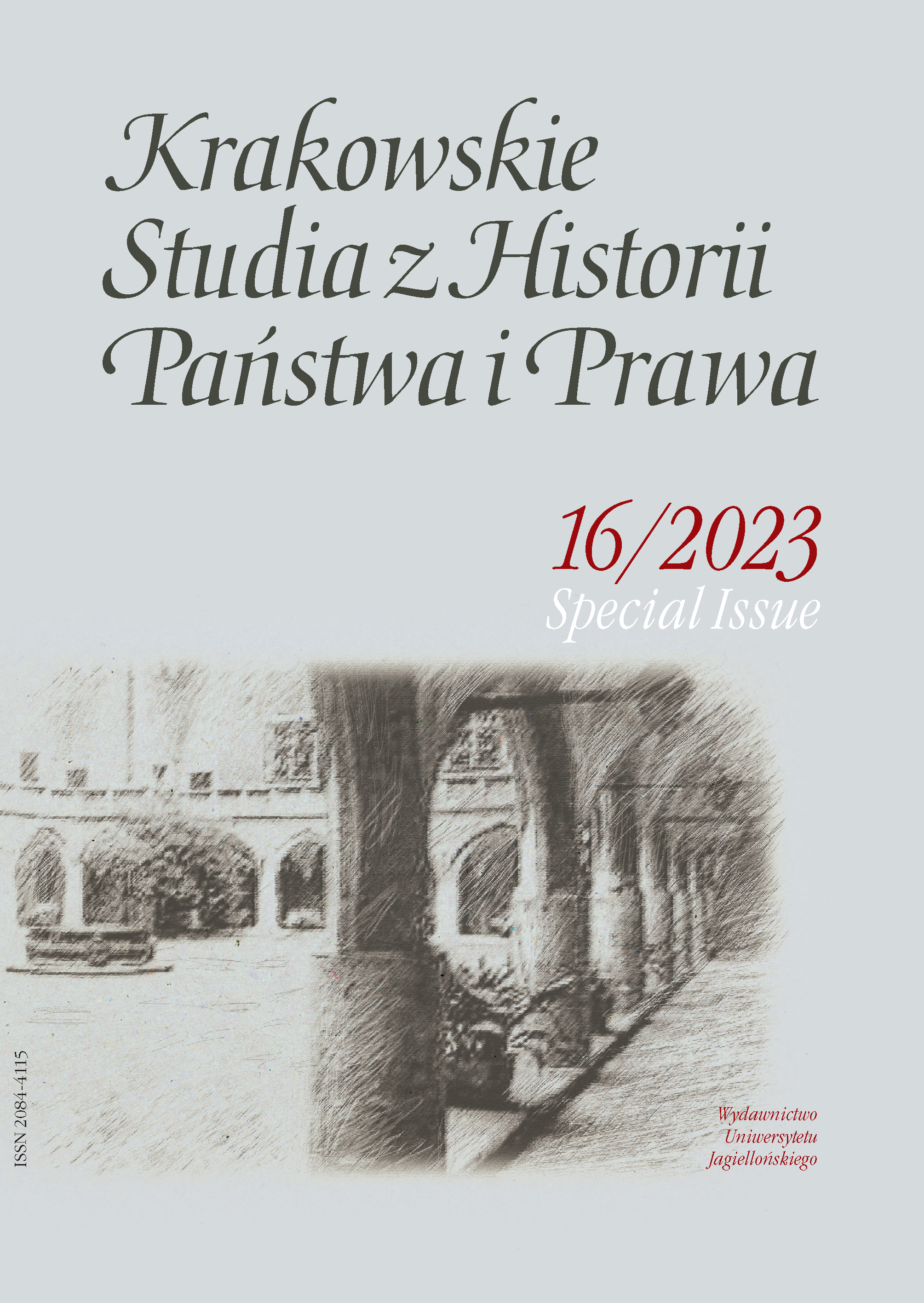“Wohlstand, Bildung und Freiheit für Alle.” The Idea of Human Rights in the View of Gustav Struve as an Example of Radical German Political and Legal Thought during the Springtime
of Nations
“Wohlstand, Bildung und Freiheit für Alle.” The Idea of Human Rights in the View of Gustav Struve as an Example of Radical German Political and Legal Thought during the Springtime
of Nations
Author(s): Paweł LesińskiSubject(s): History of Law, Human Rights and Humanitarian Law, Political history, Social history, 19th Century
Published by: Wydawnictwo Uniwersytetu Jagiellońskiego
Keywords: Gustav von Struve; human rights; revolution; Springtime of Nations; radicalism;
Summary/Abstract: The Springtime of Nations in Germany is mostly associated with the views of various moderate liberals who played leading roles during these revolutionary events. The case is different when it comes to the members of the most radical wing within the liberal movement, the so-called “democrats.” Their ideas are described far less frequently. The article presented analyzes the idea of human rights in the view of Gustav Struve – one of the most important figures in the German democratic movement. During the German Springtime of Nations, the notion of human rights was one of the most frequently discussed but also variably understood problems. G. Struve’s views regarding this question refer not only to the idea of human rights, they also form a kind of political manifesto including solutions for various problems encountered by average citizens along with suggestions concerning an equitable structure of the social order. These postulates were revolutionary and radical but often incoherent. Thus, they fit well into the characteristics of the whole German democratic movement in the first half of the 19th century, which was seen as an unpopular, unsystematic, eclectic and immature phenomenon. The article first describes G. Struve’s life in the context of various events of the German Springtime of Nations. Subsequently, it analyzes the notion of the human being, his functioning in the social community and the definition of his rights. The article ends with an analysis of the material content of the concept of human rights in the view of the described German radical.
Journal: Krakowskie Studia z Historii Państwa i Prawa
- Issue Year: 16/2023
- Issue No: Sp. Issue
- Page Range: 65 - 83
- Page Count: 19
- Language: English

